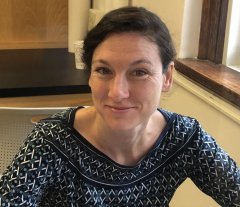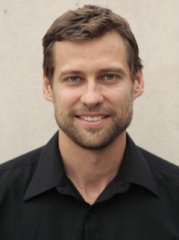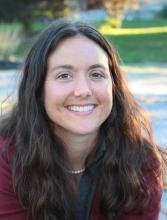News & Announcements
Kirk MacKinnon and Jacob Maman receive Lotta Crabtree Fellowships
Kirk MacKinnon and Jacob Maman receive Lotta Crabtree Fellowships
Congratulations to Kirk MacKinnon (Hazen lab) and Jacob Maman (Ma lab), recipients of the Lotta M. Crabtree Fellowship in Production Agriculture! This award is a reflection of their hard work and academic achievement, and will support their research for the spring semester.
Research Team Traces Evolution of the Domesticated Tomato
Research Team Traces Evolution of the Domesticated Tomato
In a new paper, a team of evolutionary biologists and geneticists led by senior author associate professor Ana Caicedo, with first author Hamid Razifard at the University of Massachusetts Amherst, and others, report that they have identified missing links in the tomato’s evolution from a wild blueberry-sized fruit in South America to the larger modern tomato of today. Details appear in an Advanced Access edition of Molecular Biology and Evolution. Read more
Foundation Supports New Work on Brain-eating Amoeba
Foundation Supports New Work on Brain-eating Amoeba
Evolutionary cell biologist Lillian Fritz-Laylin, biology, recently was granted a three-year, $300,000 Smith Family Award for Excellence in Biomedical Research to support her research on the pathogenesis of the brain-eating amoeba Naegleria fowleri. For 28 years, the Smith Family Foundation has supported full-time faculty biomedical researchers at nonprofit academic, medical or research institutions in Massachusetts, at Brown University or at Yale University. Its mission is “to launch the careers of newly independent biomedical researchers with the ultimate goal of achieving medical breakthroughs.” Read more
The Slow Burn of Flame Retardants: Perinatal Exposure Alters Liver Epigenome, Predisposing Rats to Metabolic Disease
The Slow Burn of Flame Retardants: Perinatal Exposure Alters Liver Epigenome, Predisposing Rats to Metabolic Disease
Studies have shown that perinatal exposure of rats and mice to common flame retardants found in household items permanently reprograms liver metabolism, often leading later in life to insulin resistance and non-alcoholic fatty liver disease.
Now, research led by University of Massachusetts Amherst environmental toxicologist Alexander Suvorov, with co-authors in Moscow, Russia, has identified the likely mechanism responsible for the pollutant’s effect: an altered liver epigenome. The epigenome refers to heritable changes in gene expression without changes in the DNA sequence. “Changes in the liver epigenome can explain those functional changes in the liver,” Suvorov explains. “We looked at two different epigenetic mechanisms and there were changes in both.” These findings were published Dec. 13 in the medical journal Epigenomics. Read more
Pilsner Interviewed for “Environmental Health Chats” Podcast
Pilsner Interviewed for “Environmental Health Chats” Podcast
Richard Pilsner, associate professor of environmental health sciences, was recently interviewed for the National Institute of Environmental Health Sciences’ podcast series “Environmental Health Chats.” The series explores how environmental exposures affect our health, with each episode highlighting ways researchers work in partnership with community groups to understand and address environmental health issues. Read more
Shelly Peyton Elected a Fellow of the American Institute for Medical and Biological Engineering
Shelly Peyton Elected a Fellow of the American Institute for Medical and Biological Engineering
Shelly Peyton, associate professor of chemical engineering, has been elected to the College of Fellows of the American Institute for Medical and Biological Engineering (AIMBE). The college is made up of 2,000 members, the top 2% of the medical and biological engineering community, who are outstanding bioengineers in academia, industry, clinical practice and government.
AIMBE is a Washington, D.C.-based non-profit organization that represents the most accomplished individuals in the fields of medical and biological engineering. “As chair of AIMBE’s College of Fellows, I oversee the nomination, review and election process,” says Paul Citron. “I can say without any hesitation the Class of 2020 is truly remarkable. This year AIMBE received the largest number of nominations - all of which were qualified candidates.”
Peyton is the head of the Peyton Research Group. She says, “We are several women and men, engineers, and biologists, and our mission is to learn how cells process information from their chemical and physical tissue environment.” Read more
Ten UMass Amherst Researchers Recognized Among World’s Most Highly Cited Scientists
Ten UMass Amherst Researchers Recognized Among World’s Most Highly Cited Scientists
Ten researchers at the University of Massachusetts Amherst have been recognized for being among the world’s most highly cited researchers in 2019 by London-based Clarivate Analytics, owner of the Web of Science. Now in its sixth year, the citation analysis identifies influential researchers as determined by their peers around the world. They have consistently won recognition in the form of high citation counts over a decade. These scientists are judged to be influential, and their citation records are seen as “a mark of exceptional impact,” the company says.
The ten UMass Amherst researchers recognized on the 2019 list are Catrine Tudor-Locke and Laura Vandenberg of the School of Public Health and Health Sciences, food scientists David Julian McClements, Eric Decker and Hang Xiao, microbiologist Kelly Nevin and Derek Lovley, materials scientist Thomas Russell and chemist Vincent Rotello in the College of Natural Sciences, and environmental chemist Baoshan Xing of the Stockbridge School of Agriculture. Read more
Timme-Laragy Hosts Workshop on PFAS Contamination for State Legislators
Timme-Laragy Hosts Workshop on PFAS Contamination for State Legislators
Alicia Timme-Laragy, associate professor of environmental health sciences, a developmental toxicologist with expertise in how early life exposures to pollutants affect health, recently hosted a workshop for elected officials and candidates on the health risks associated with per- and polyfluoroalkyl substances (PFAS) chemicals. “PFAS 101: Current Research and Health Risks” brought staff representing a number of state representatives and senators, Westfield city councilors, and staffers from Sens. Elizabeth Warren and Ed Markey's office to campus to introduce legislators to the current state of research and raise awareness of the health risks associated with PFAS chemicals. Read more
Chen Receives NSF Grant to Support Computing Cluster
Chen Receives NSF Grant to Support Computing Cluster
To support a broadly shared Graphic Processing Unit (GPU)-enabled high-performance computing cluster for the Institute for Applied Sciences (IALS), computational biophysicist Jianhan Chen, chemistry and biochemistry and molecular biology, with others, recently was awarded a two-year, $415,000 grant from the National Science Foundation (NSF) that will fill what Chen calls “a critical need” for enabling computation-intensive research activities on campus.
Although the UMass system has a traditional shared cluster housed at the Massachusetts Green High-performance Computing Center (MGHPCC) in Holyoke, Chen points out, the current cluster has “minimal GPU capacity” and the campus and IALS need dedicated GPU computing hardware to support their research communities. His co-principal investigators on the project are Erin Conlon, mathematics and statistics, Peng Bai, chemical engineering, Chungwen Liang, IALS director of computational modeling, and Matthew Moore, food science.
Statistician Flaherty, Molecular Biologist Chien Join Forces
Statistician Flaherty, Molecular Biologist Chien Join Forces
Patrick Flaherty, professor of mathematics and statistics, was recently awarded a three-year, $582,883 grant from the National Institutes of Health’s (NIH) National Institute of General Medical Sciences to better understand cellular protein homeostasis, the balance between protein creation and destruction. The dysregulation of protein homeostasis is one of the primary paths that allows diseases such as Alzheimer's, Huntington’s or Parkinson’s to develop.
Flaherty is an expert on statistical tools used to analyze large genomic data sets. He is collaborating on this award with Peter Chien, professor of biochemistry and molecular biology, who is an expert on the highly regulated cellular cleanup system in which specialized proteins called proteases degrade damaged or no-longer-needed proteins – a system critical for protein homeostasis. They plan to develop new statistical and computational tools to analyze large-scale genetic experiments to catalog the essential components of this system, which Flaherty and Chien hope will lead to better understanding of pathways important for many human diseases. Read more






